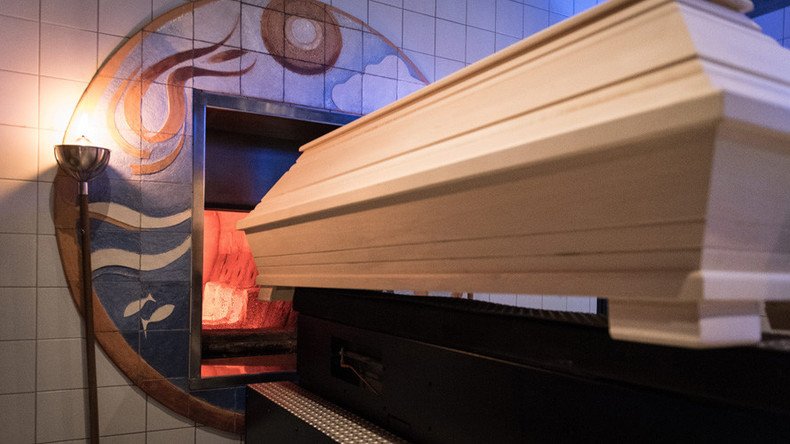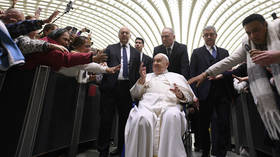US firm makes millions selling dead body parts donated to science – report

A year-long investigation by the Reuters news agency has uncovered an American business selling organs, and other body parts donated to science, often without the knowledge of relatives. Under US law it is perfectly legal.
In 2008, Science Care Inc. developed a 55-page national expansion plan. The goal was to maximize profits from the sale of human bodies donated to science. The company’s model for ensuring quality was the McDonald’s Corp.
The company aimed to provide customers with the same cuts from cadavers no matter which Science Care branch handled the order. Company founder James Rogers cited production methods perfected by Ray Kroc, the visionary who turned a hamburger stand into a fast-food empire, according to an executive who worked closely with Rogers.
READ MORE: ‘Automatic’ organ donation considered in Denmark
“He used the McDonald’s analogy that no matter where you go, you get the same exact thing,” the executive, former quality assurance director John Cover, said in a 2009 sworn statement.
“It was all about quality,” Cover said in a recent interview. “When you get a Big Mac, it’s going to taste like a Big Mac, whether you’re in Louisiana or San Francisco.”
Only instead of selling hamburgers. Science Care and Rogers have made millions from human body parts.
Woman survives 6 days with no lungs after 13hr, first-of-a-kind operationhttps://t.co/32VHm4FtjApic.twitter.com/swqII1btfp
— RT (@RT_com) January 27, 2017
According to the website of Arizona-based firm Science Care Inc. along with its subsidiaries, it serves as a link between individual donors and medical researchers and educators. It also promises cremation at no cost to the donors or their families.
Body donation differs from organ donation in that it is closely linked to lifesaving procedures such as when a patient receives a heart or a kidney from the recently deceased. Organ donation is strictly controlled in the US, and selling organs and other body parts for transplant is against the law.
Ban on gay men donating blood 'may be justified' in certain cases – European Court of Justice http://t.co/ItyBwWvWWtpic.twitter.com/tlcFcZLFak
— RT (@RT_com) April 29, 2015
It’s entirely different when it comes to dead body donation. Science Care doesn’t break the law, as US regulations don’t prohibit doing whatever you want with corpses donated to science. Science Care is free to sell or lease the bodies and their parts, torsos, heads or limbs.
The business gets many of its bodies form hospices and needy families who cannot afford funerals. Body donation commonly saves families lots of money. A funeral including the cost of a coffin, the memorial service, and burial, may cost a family $7,000, while the price for a simple cremation, which is getting increasingly popular, comes in at $1,000.
World's first biolimb: Scientists create living, functioning rat leg http://t.co/e1UvkDSTgBpic.twitter.com/micV4j5qKo
— RT (@RT_com) June 5, 2015
Science Care takes on all the funeral expenses, but before cremation, the company’s staff dismember a body to sell its parts to research centers and medical schools. For a brain, the firm reportedly earns $750. Relatives get all the remaining unnecessary parts, which are then cremated and put into a funeral urn.
The body broker earned around $12.5 million from 2012 through 2014, according to Internal Revenue Service audits and court documents reviewed by Reuters.













